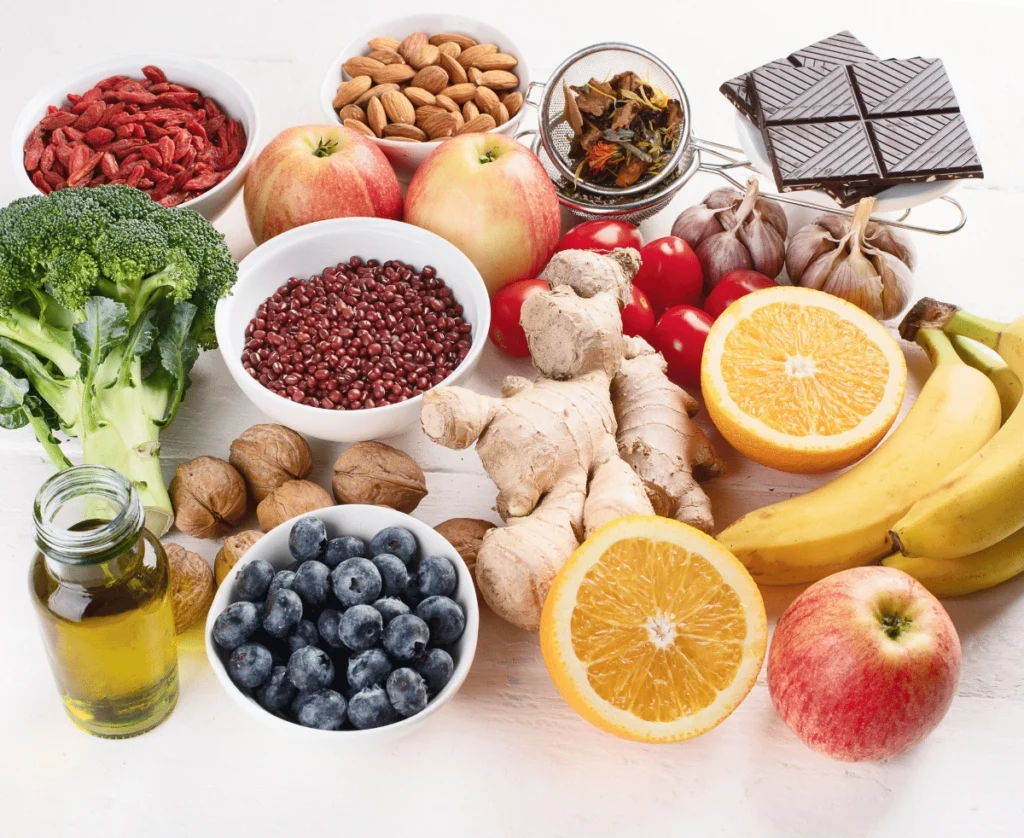Stem cell therapy for autism has gained significant attention as an innovative approach to improving neurodevelopmental outcomes. However, successful treatment extends beyond the clinical intervention itself. Nutrition, especially the intake of polyphenol-containing foods, plays a crucial role in supporting stem cell health and function. Polyphenols, powerful antioxidants and anti-inflammatory agents found in many plant-based foods, can positively influence the regenerative environment and may enhance the overall efficacy of stem cell therapy. This article delves into the science behind polyphenols, practical dietary advice, and the latest research linking nutrition to stem cell therapy success in autism.
Table of Contents
Understanding Polyphenols and Their Role in Stem Cell Therapy
Polyphenols are bioactive compounds present in a wide variety of fruits, vegetables, teas, and nuts. Their antioxidant properties help counteract oxidative stress, which is a significant challenge for stem cells used in therapeutic procedures. Oxidative stress can impair stem cell survival and differentiation, limiting their regenerative potential.
In addition to their antioxidant effects, polyphenols modulate inflammatory pathways, which is essential because chronic inflammation can hinder neuroregeneration and the integration of transplanted stem cells into neural circuits.
Research Insight:
A growing body of preclinical and clinical research suggests that polyphenols such as resveratrol (found in grapes), quercetin (in apples and onions), and epigallocatechin gallate (EGCG, abundant in green tea) promote neural stem cell proliferation and differentiation. These effects can enhance the brain’s plasticity and repair mechanisms, potentially improving behavioral and cognitive outcomes in children undergoing stem cell therapy for autism.
Recommended Polyphenol-Rich Foods to Support Stem Cell Therapy
To optimize the benefits of stem cell treatment, patients and caregivers are encouraged to include the following foods in their daily diet:
- Berries (Blueberries, Strawberries, Raspberries):
Rich in anthocyanins, these fruits have demonstrated neuroprotective effects in multiple studies. They help reduce oxidative damage and support cognitive function. - Green Tea:
A potent source of EGCG, green tea supports neural stem cell survival and has anti-inflammatory properties. - Dark Chocolate (70% Cocoa or Higher):
Contains flavonoids that improve cerebral blood flow and provide neuroprotection. - Olive Oil:
Especially extra virgin olive oil, a key component of the Mediterranean diet, is rich in hydroxytyrosol and oleuropein, which have anti-inflammatory and antioxidant effects. - Nuts (Walnuts, Almonds):
Packed with ellagic acid and other polyphenols, nuts support brain health and reduce inflammation. - Leafy Green Vegetables (Spinach, Kale, Broccoli):
These vegetables are loaded with flavonoids and carotenoids that promote neurogenesis and reduce oxidative stress.
How Polyphenols Enhance the Success Rate of Stem Cell Therapy in Autism
The interplay between stem cell biology and nutrition is complex but pivotal. Polyphenols contribute to therapy success through several mechanisms:
- Protection Against Oxidative Stress:
Stem cells are vulnerable to free radical damage. Polyphenols neutralize these harmful molecules, helping stem cells survive longer and function better. - Anti-inflammatory Action:
By downregulating pro-inflammatory cytokines, polyphenols help create a more favorable environment for stem cells to engraft and integrate. - Promotion of Neural Differentiation:
Certain polyphenols can activate signaling pathways that encourage stem cells to differentiate into neurons and glial cells, which are critical for brain repair. - Support of Synaptic Plasticity:
Improved synaptic connections translate to better learning, memory, and behavior, key areas affected in autism spectrum disorders.
Clinical Evidence:
A 2023 study in Stem Cell Research & Therapy highlighted improved behavioral scores and neurocognitive function in autism patients who followed a polyphenol-enriched diet alongside their stem cell therapy regimen. These findings reinforce the potential of nutritional support to complement medical treatment.

Stem Cell Therapy for Autism: Reviews and Clinical Research Highlights
Parents and clinicians increasingly seek stem cell therapy autism reviews to understand the real-world impact of treatments. While clinical outcomes vary, those who combine stem cell procedures with supportive nutrition—including polyphenol-rich foods—often report enhanced improvements in communication, social skills, and cognitive functions.
Stem Cell Therapy Autism Clinical Trials also emphasize the importance of holistic treatment approaches. Several trials now include dietary counseling and antioxidant supplementation as part of the protocol to maximize therapeutic benefits.
Frequently Asked Questions (FAQ)
How effective is stem cell therapy for autism?
Stem cell therapy shows promising results in improving behavioral and cognitive symptoms, especially when combined with supportive measures like nutrition and behavioral therapies.
Are there any side effects of stem cell therapy for autism?
Side effects are generally mild but may include inflammation. Polyphenol-rich diets may help minimize these effects by reducing oxidative stress and inflammation.
What should I eat to support stem cell therapy?
A diet rich in polyphenol-containing foods such as berries, green tea, nuts, and colorful vegetables supports stem cell function and brain health.
Can stem cell therapy be combined with other treatments?
Yes, integrating stem cell therapy with behavioral interventions, nutritional support, and medical management offers the best outcomes.
Conclusion
Polyphenol-containing foods represent a natural, accessible way to support stem cell therapy for autism. Their antioxidant and anti-inflammatory properties help protect and enhance stem cell function, fostering a more conducive environment for neuroregeneration. Families considering or undergoing stem cell therapy should prioritize polyphenol-rich nutrition as part of a comprehensive treatment plan.
For personalized advice and to optimize stem cell therapy outcomes, consult with healthcare professionals about integrating polyphenol-rich foods into your diet.
